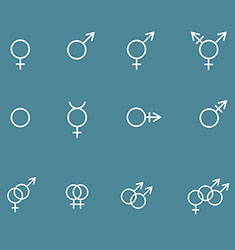Program Description
Communication is a diverse discipline and offers a variety of training to prepare students for their careers. Students are able to focus on technical skills along with theoretically geared courses to develop a comprehensive portfolio to market themselves to industry. Students are encouraged to personalize their curricular choices to help meet professional/personal goals. For example, students often take elective courses that are outside of their specific emphasis to develop additional skills to be able to access different careers.
The Department of Communication offers a B.A. or B.S. in Communication with four emphases: Strategic Communication (public relations, advertising, integrated marketing); Journalism (digital, broadcast, print); Communication Studies; or Science, Health, Environmental, and Risk Communication. Regardless of your emphasis, a major in communication will provide you with knowledge on ethical communication, persuasion, social influence, and social responsibility. Paired with improved skills in writing and speaking, you will be highly competitive in the job market.
Many students also look at the Communication Department to complement another major. Business, Sociology, Economics, and even Music majors often find a home in the Communication Department. These students look to supplement their education with a degree in Communication, leaving the U of U with a more complete set of skills.
- Alongside the listed minors include out two certificate programs. “The Department of Communication also offers the following certificate programs: Health Communication and Dialogue, Conflict Resolution, and Mediation. These are both open to all degree-seeking undergraduates at the University of Utah.”
The Student Experience
There are many enrichment opportunities within the Department of Communication. If you want to network and spend time with fellow communication students, be sure to join one of the department’s many clubs and organizations: The John R. Park Debate Society allows members to practice debate skills in a friendly, competitive environment. Student Media provides students with practical positions in radio and digital journalism while PRSSA is a student-run advertising and PR club helping students learn the skills to become future professionals in the field. Additionally, the department helps hundreds of students complete high-quality internships every year in a wide range of subjects.
Accelerate U is an optional program for students interested in Communication that allows you to earn your degree faster. Tell your academic advisor you are interested in joining the Accelerate U program. Go to https://accelerateu.utah.edu/ to learn more.
Career Opportunities
Graduates of the Communication program have found work as editors, communication directors, marketing and sales managers, and radio and video producers. Careers in publishing (as a writer or editor), advertising, and the media (as a broadcaster, journalist, or reporter) are also possible. Work for the government as a lobbyist, campaign manager, or town manager, or in the nonprofit sector as a grant writer or program coordinator. With additional education, students can also become lawyers, advisors, and professors.

 Communication
Communication


